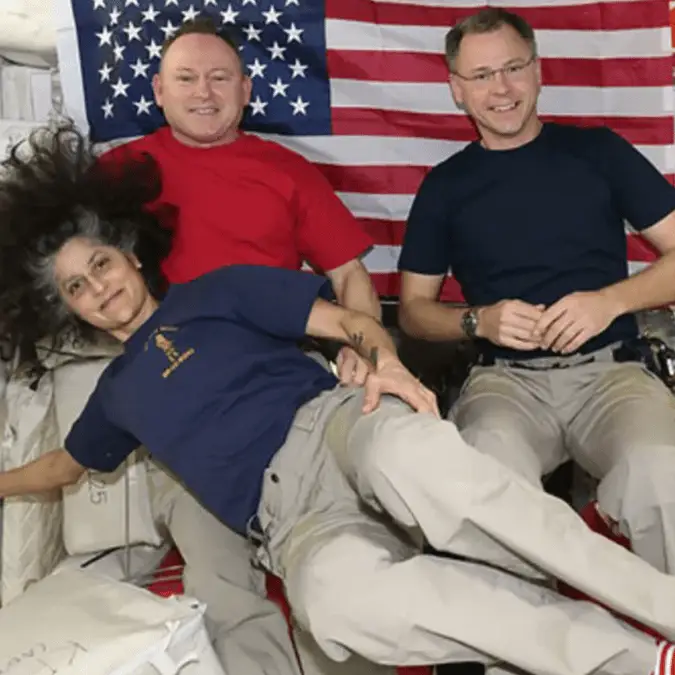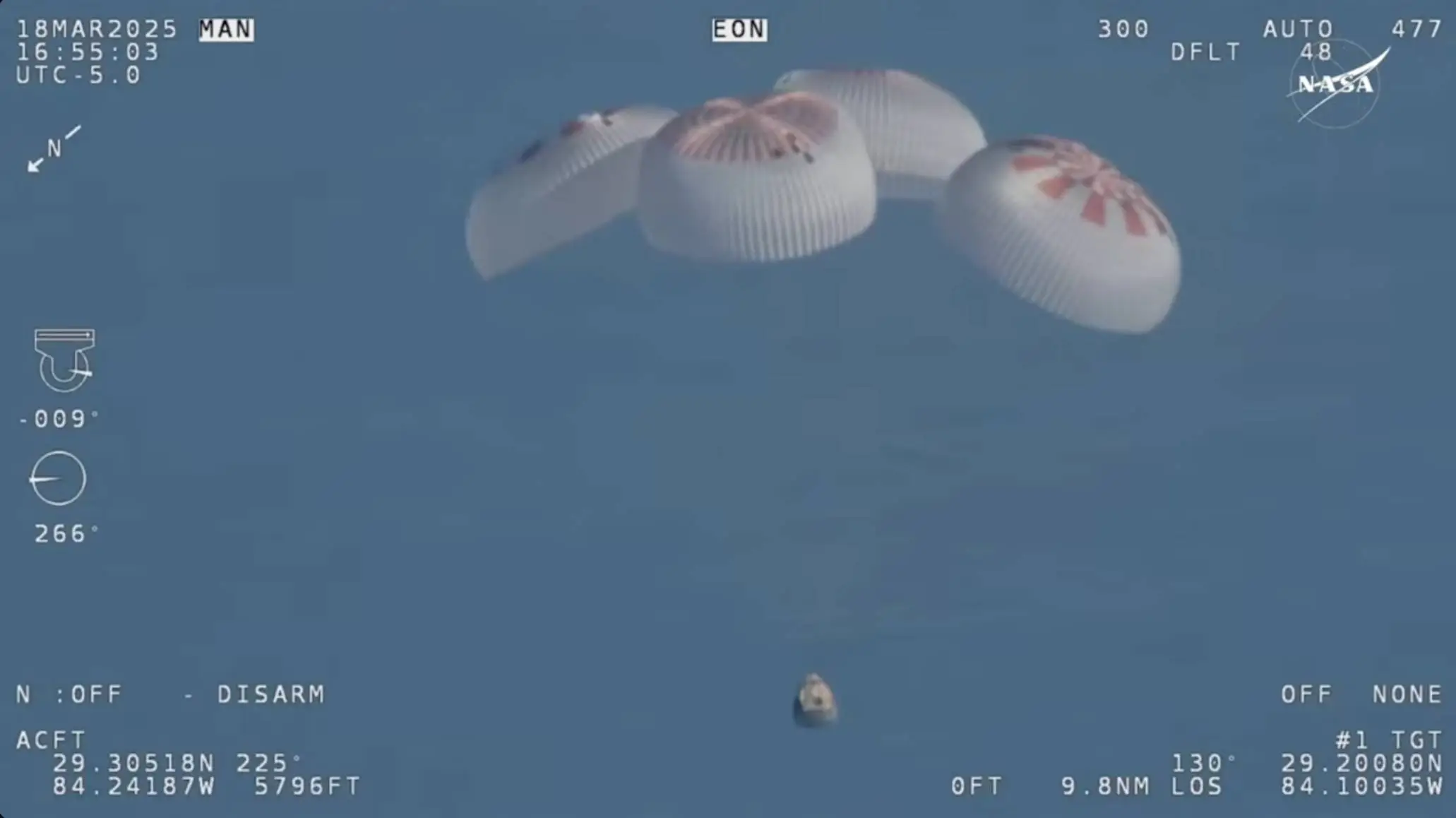
After nine months being 'stuck' on the International Space Station, Sunita Williams and Butch Wilmore are finally back on Earth. Following a 17-hour journey back from space, the pair of astronauts made a splashdown near Tallahassee, Florida.
Although March 12 rescue mission was called off at the last minute, Williams and Wilmore were finally boarded onto their Dragon spacecraft and disembarked with Nick Hague and Aleksandr Gorbunov.
NASA gave people around the globe a chance to watch this historic moment live, with thousands tuning in to watch the craft make it out of orbit.

Advert
All four safely returned to Earth on March 18, with the long-awaited return of Williams and Wilmore being all anyone could talk about.
Landing right on time at 5:57 pm Eastern Time, Dragon successfully reentered the atmosphere and deployed its parachutes.
It was then over to the recovery vessels to climb aboard the capsule and check that everything is okay with everyone inside.
The main vessel (Megan) is on the way to Dragon, although it takes around 25 minutes to get there.
In the meantime, Williams and Wilmore are left bobbing in the ocean, although we're told there's air conditioning to keep things cool inside. We imagine it can get a little stuffy while inside their suits.
At least they've back on Earth, and while it's not quite dry land just yet, we're sure they've glad to be back from their extended stay in the cosmos.